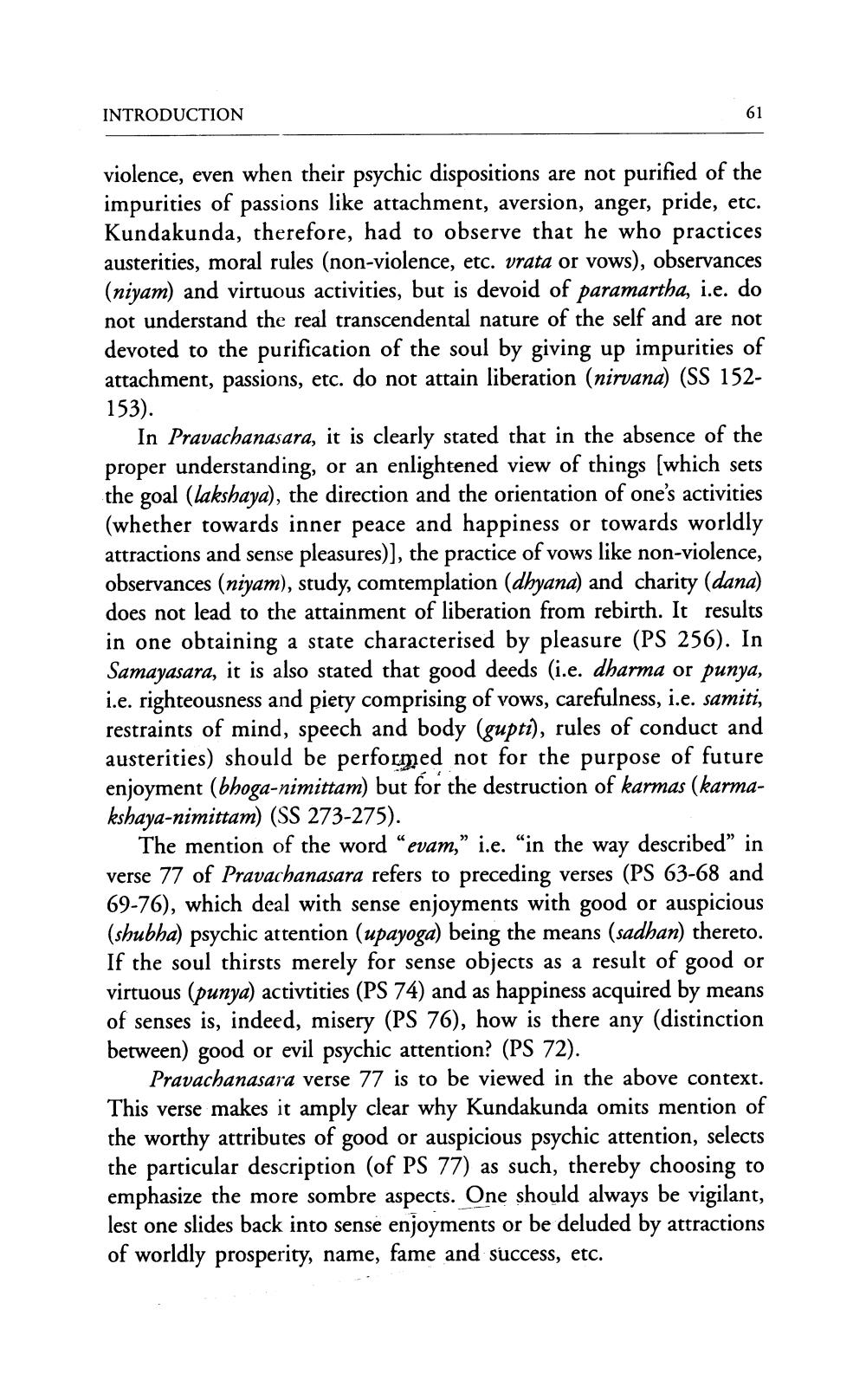________________
INTRODUCTION
61
violence, even when their psychic dispositions are not purified of the impurities of passions like attachment, aversion, anger, pride, etc. Kundakunda, therefore, had to observe that he who practices austerities, moral rules (non-violence, etc. vrata or vows), observances (niyam) and virtuous activities, but is devoid of paramartha, i.e. do not understand the real transcendental nature of the self and are not devoted to the purification of the soul by giving up impurities of attachment, passions, etc. do not attain liberation (nirvana) (SS 152153).
In Pravachanasara, it is clearly stated that in the absence of the proper understanding, or an enlightened view of things [which sets the goal (lakshaya), the direction and the orientation of one's activities (whether towards inner peace and happiness or towards worldly attractions and sense pleasures)], the practice of vows like non-violence, observances (niyam), study, comtemplation (dhyana) and charity (dana) does not lead to the attainment of liberation from rebirth. It results in one obtaining a state characterised by pleasure (PS 256). In Samayasara, it is also stated that good deeds (i.e. dharma or punya, i.e. righteousness and piety comprising of vows, carefulness, i.e. samiti, restraints of mind, speech and body (gupti), rules of conduct and austerities) should be performed not for the purpose of future enjoyment (bhoga-nimittam) but for the destruction of karmas (karmakshaya-nimittam) (SS 273-275).
The mention of the word "evam," i.e. "in the way described" in verse 77 of Pravachanasara refers to preceding verses (PS 63-68 and 69-76), which deal with sense enjoyments with good or auspicious (shubha) psychic attention (upayoga) being the means (sadhan) thereto. If the soul thirsts merely for sense objects as a result of good or virtuous (punya) activtities (PS 74) and as happiness acquired by means of senses is, indeed, misery (PS 76), how is there any (distinction between) good or evil psychic attention? (PS 72).
Pravachanasara verse 77 is to be viewed in the above context. This verse makes it amply clear why Kundakunda omits mention of the worthy attributes of good or auspicious psychic attention, selects the particular description (of PS 77) as such, thereby choosing to emphasize the more sombre aspects. One should always be vigilant, lest one slides back into sense enjoyments or be deluded by attractions of worldly prosperity, name, fame and success, etc.




